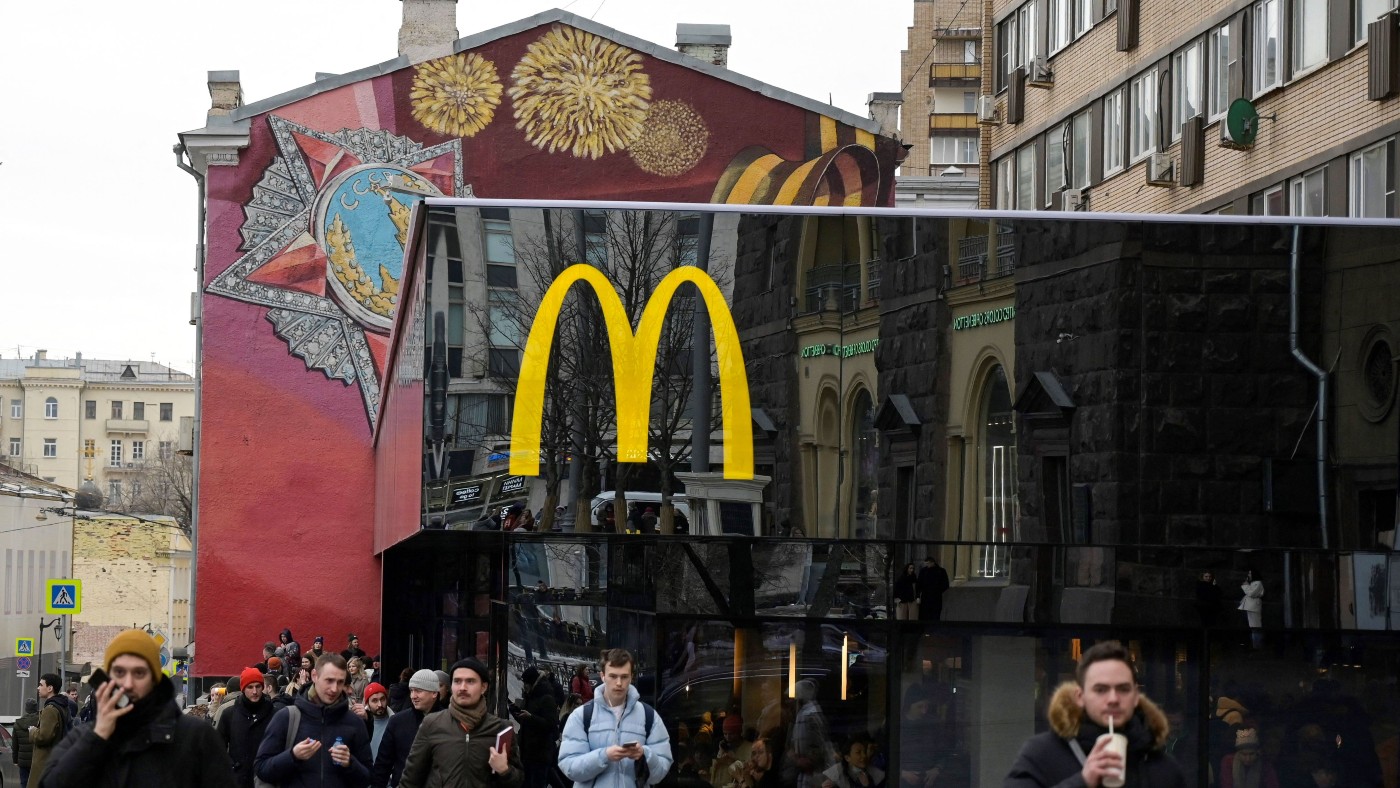Russian roulette for McDonald’s, Unilever and Renault
McDonald’s exit from Russia will put pressure on other big companies

A free daily email with the biggest news stories of the day – and the best features from TheWeek.com
You are now subscribed
Your newsletter sign-up was successful
McDonald’s Russian restaurants had an element of exoticism missing from some Western branches, said the Financial Times. Local specialities included “Beef a la Russe burger on a black bread bun”. But now they are shutting for good. Two months after temporarily closing 850 outlets, the US fast food chain is selling its Russian business. The company hopes to find a local buyer to hire employees, but nonetheless expects to write off a non-cash charge of up to $1.4bn “in its first exit from a large market”. The move marks a symbolic retreat, 32 years after McDonald’s opened its first outlet on Moscow’s Pushkin Square. Having “embodied the very notion of glasnost”, said CEO Chris Kempczinski, “the Golden Arches will shine no more”.
Kempczinski stated that remaining is not “consistent with McDonald’s values” amidst “the humanitarian crisis” of the Ukraine war. Its exit will put pressure on others, said Nils Pratley in The Guardian. Unilever says that it is remaining in the country, at no profit to itself, so that it can continue supplying “essential goods” (Wall’s ice cream anyone?) to the Russian people, and to support employees. “Nobody should deny the complexities, but Unilever looks increasingly isolated.”
In one of the most significant retreats yet, Renault is selling its whole operation, including its 67.7% stake in Lada-maker Avtovaz, to Russian state entities for a “token” two roubles, said Lex in the FT. The €2.2bn write-down means that the French carmaker, shaved of its Russian assets, is now worth barely more than its large shareholding in the Japanese group Nissan. The quality of Russian-made cars has improved greatly since Lada’s Soviet heyday. “Jokes about rusty old clunkers now apply more pertinently to Renault than they do to Lada cars.”
The Week
Escape your echo chamber. Get the facts behind the news, plus analysis from multiple perspectives.

Sign up for The Week's Free Newsletters
From our morning news briefing to a weekly Good News Newsletter, get the best of The Week delivered directly to your inbox.
From our morning news briefing to a weekly Good News Newsletter, get the best of The Week delivered directly to your inbox.
A free daily email with the biggest news stories of the day – and the best features from TheWeek.com
-
 How the FCC’s ‘equal time’ rule works
How the FCC’s ‘equal time’ rule worksIn the Spotlight The law is at the heart of the Colbert-CBS conflict
-
 What is the endgame in the DHS shutdown?
What is the endgame in the DHS shutdown?Today’s Big Question Democrats want to rein in ICE’s immigration crackdown
-
 ‘Poor time management isn’t just an inconvenience’
‘Poor time management isn’t just an inconvenience’Instant Opinion Opinion, comment and editorials of the day
-
 Currencies: Why Trump wants a weak dollar
Currencies: Why Trump wants a weak dollarFeature The dollar has fallen 12% since Trump took office
-
 Elon Musk’s starry mega-merger
Elon Musk’s starry mega-mergerTalking Point SpaceX founder is promising investors a rocket trip to the future – and a sprawling conglomerate to boot
-
 TikTok: New owners, same risks
TikTok: New owners, same risksFeature What are Larry Ellison’s plans for TikTok US?
-
 Will SpaceX, OpenAI and Anthropic make 2026 the year of mega tech listings?
Will SpaceX, OpenAI and Anthropic make 2026 the year of mega tech listings?In Depth SpaceX float may come as soon as this year, and would be the largest IPO in history
-
 Leadership: A conspicuous silence from CEOs
Leadership: A conspicuous silence from CEOsFeature CEOs were more vocal during Trump’s first term
-
 Ryanair/SpaceX: could Musk really buy the airline?
Ryanair/SpaceX: could Musk really buy the airline?Talking Point Irish budget carrier has become embroiled in unlikely feud with the world’s wealthiest man
-
 Powell: The Fed’s last hope?
Powell: The Fed’s last hope?Feature Federal Reserve Chairman Jerome Powell fights back against President Trump's claims
-
 Taxes: It’s California vs. the billionaires
Taxes: It’s California vs. the billionairesFeature Larry Page and Peter Thiel may take their wealth elsewhere